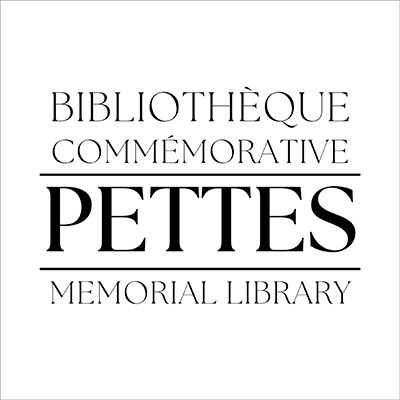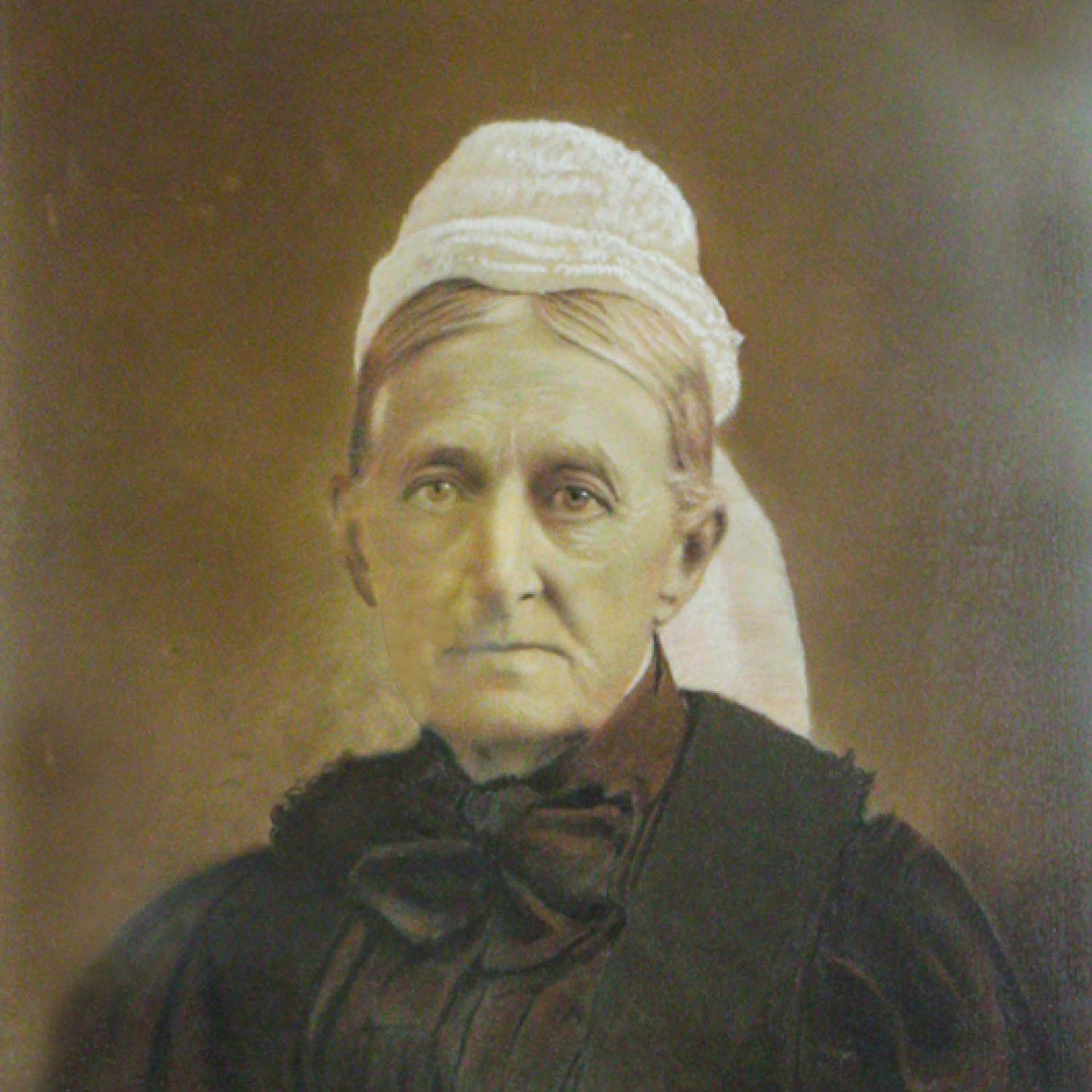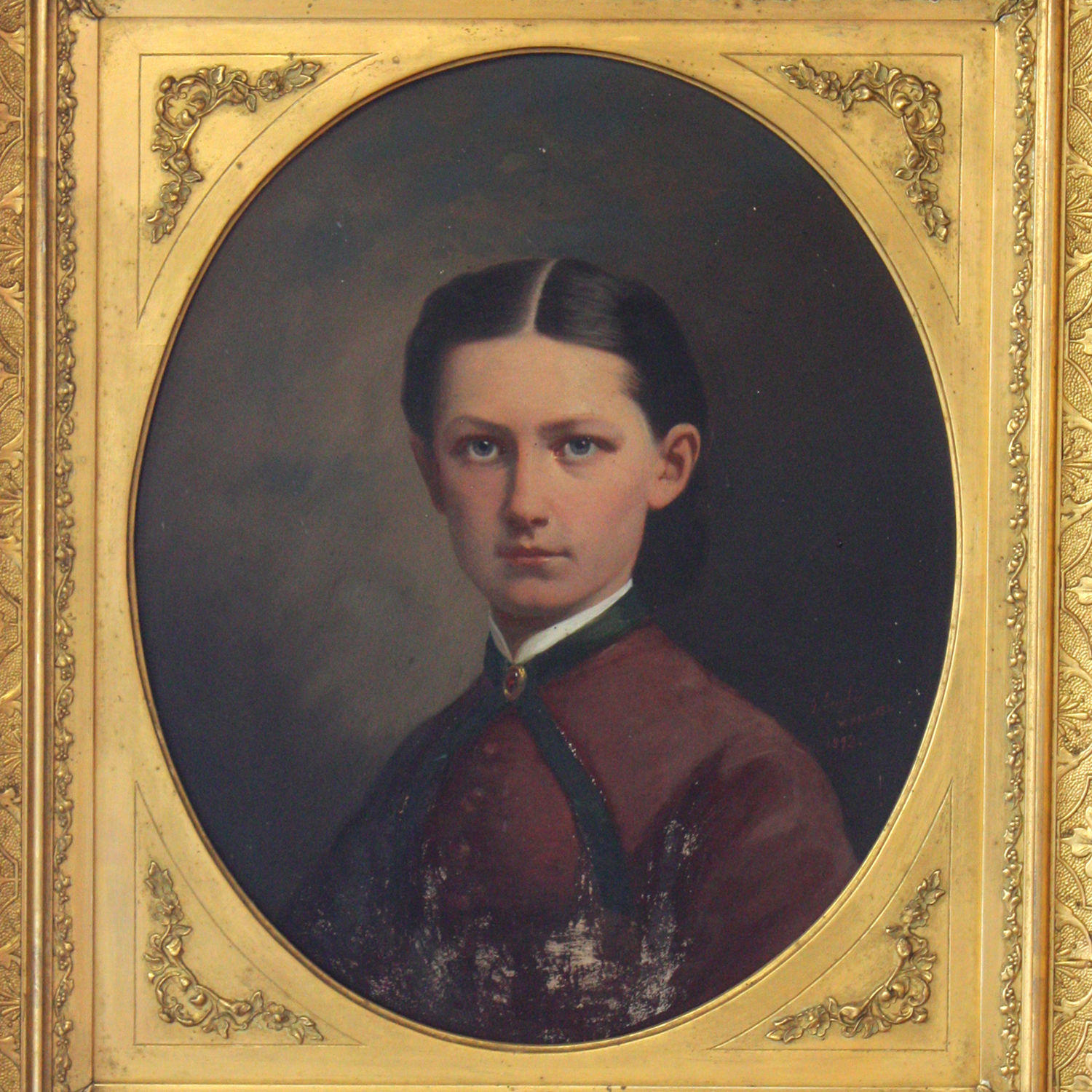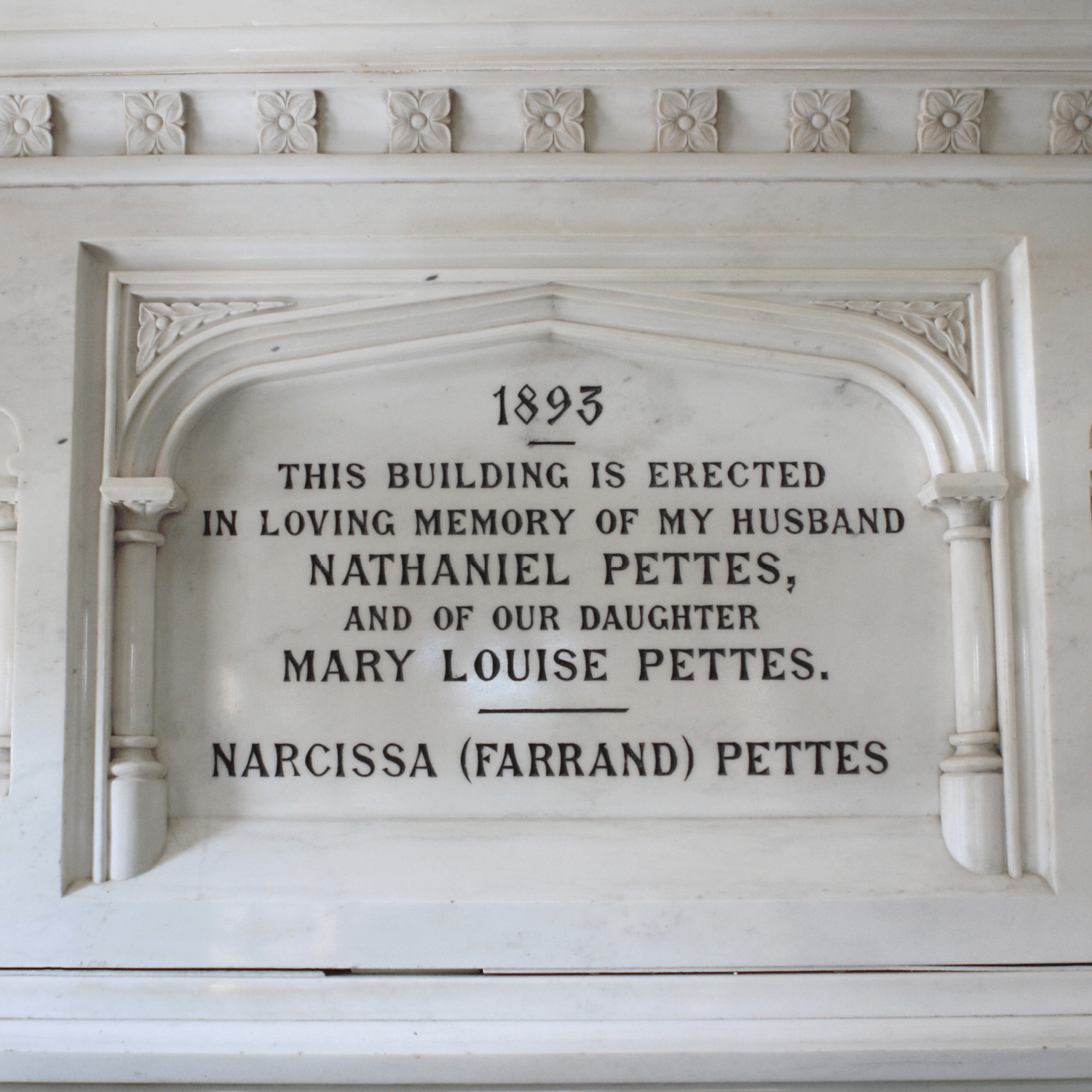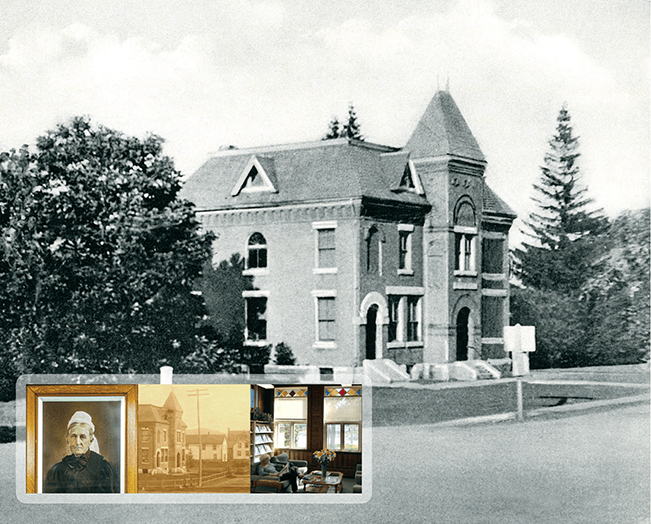Pettes Memorial Library: Who dun it?
Tempo: August 31, 2022 | Leah Curley / Traduction: Guy Côté
It was a dark night…
In April of 1858, The Advertiser and Eastern Townships Sentinel (published in Waterloo, Quebec) announced that 128 small libraries across the country were receiving $50 annual grants. Few, however, were awarded in the Eastern Townships and none in the District of Bedford. This may have sowed the seeds of interest in a library in Knowlton. Certainly, right about that time, a number of ‘literary associations’ sprang up. Among them was the Brome Library Association (BLA). Formed in 1858, its prime movers were Mr. L. M. Knowlton and Mr. J. W. Marsh, the new Principal of the Academy. At the time, the population of Knowlton was a mere two hundred.
Mr. Marsh left Knowlton a few years later, taking his leadership with him. Interest in the BLA flagged. It was a dark night for the cultural hopes of the community. But then…
Enter Narcissa Farrand Pettes
The Farrands were Huguenots, who fled France for England in 1560 before making their way to New England in the mid 1700s. Narcissa’s father came to Brome Corners (now Brome Village) where he married Mary Platt in 1821. An intellectual couple, they gave their daughter Narcissa every advantage available at the time. Her marriage to Nathaniel Pettes in 1844 gave her opportunities to further broaden her horizons.
The Pettes family had been large landowners in Massachusetts, but the American Revolution changed all that and Nathaniel’s father was born in West Brome, where he married Desire West, also of West Brome.
It was Nathaniel Pettes who started the general store in Brome back in 1844, along with his younger brother Jeremiah. Eleven years later, they moved to Knowlton and built a new store on the corner of Mt. Echo and now Knowlton Roads. An ambitious fellow whose real estate dealings brought him position and wealth, Nathaniel was elected MP for Brome County in January of 1874. Narcissa always accompanied him to Ottawa when Parliament was in session. She enjoyed the debates and soon became a keen political wonk.
Exit Nathaniel
When Nathaniel died in 1887, he left Narcissa a considerable fortune, which she decided to put to meaningful use. Always an avid reader, she decided to build a library commemorating her husband and their only child, Mary Louise, who had died several years earlier.
An extraordinary gift, Pettes Memorial was rural Quebec’s first free public library. Narcissa stipulated that books should always be at its core, “for the diffusion of useful knowledge”. But she clearly intended it to serve as a multi-purpose meetings, lectures, resource, cultural events – everything she felt necessary for “the improvement and advancement intellectually and morally of her fellow citizens”.The plot and the storyline
It was Nathaniel’s brother Jeremiah who actually purchased the plot of land on which the library would be built. It cost him $1,500. Later the same day, he sold it to Narcissa. Plans and specifications were produced by Mr. George D. Story, described in the contract as “Architect, of Newport County of Orleans, State of Vermont (one of the United States of America).” This same George Story later designed the Goodrich Memorial Library in Newport, which is listed on the U.S. National Register of Historic Places. In a letter to Narcissa, Storey estimated “for the whole job completed (excepting library furniture) the sum of six thousand eight hundred dollars”. He added another $175 to cover the cost of the stone window sills and lintels that still grace the building today.
A happy ending
The contract was signed in April 1893, complete with strict guarantees and detailed conditions. From 30-penny steel wire nails every 16 inches to wall coatings made with best hair and lathes of best spruce, Pettes Memorial would be well built and properly equipped.
Construction began in 1893. On January 6, 1894, “An Act to incorporate the Pettes Memorial” was passed by the Legislature of Quebec, and two months later, on March 7, Narcissa made her Deed of Donation, gifting the Pettes Memorial Library to the people of Brome Township.
As we know from Laura Teasdale’s recent smash hit, If Books Could Kill, the official opening of Pettes Memorial was a major community event. Musicians played, choristers sang, dignitaries spoke – and no murders were committed. All was hope for the future and gratitude for the generosity of Narcissa Farrand Pettes.
Bravo, Narcissa!
Narcissa Farrand Pettes was included in Women of Canada, a volume honouring 240 ladies from among the nation’s great families. A rare accolade for a woman from a small rural community. But then, Narcissa was a rare woman, for her own or any era. Intelligent, politically savvy, strong and civic minded, according to her obituary (The Record, 1914). “She was a cool, self-possessed woman and did not allow anything to deter her from doing what she felt to be her duty.” So, when she decided that this unimportant village of less than 1,000 souls needed rural Quebec’s first free public library, she dun it!.As her obituary concluded, “Let’s hope that it will be appreciated by this whose benefit it was erected.”
Source: The History of Pettes Memorial Library by G A Rotherham past Chairman of the Pettes Memorial Board of Trustees.
